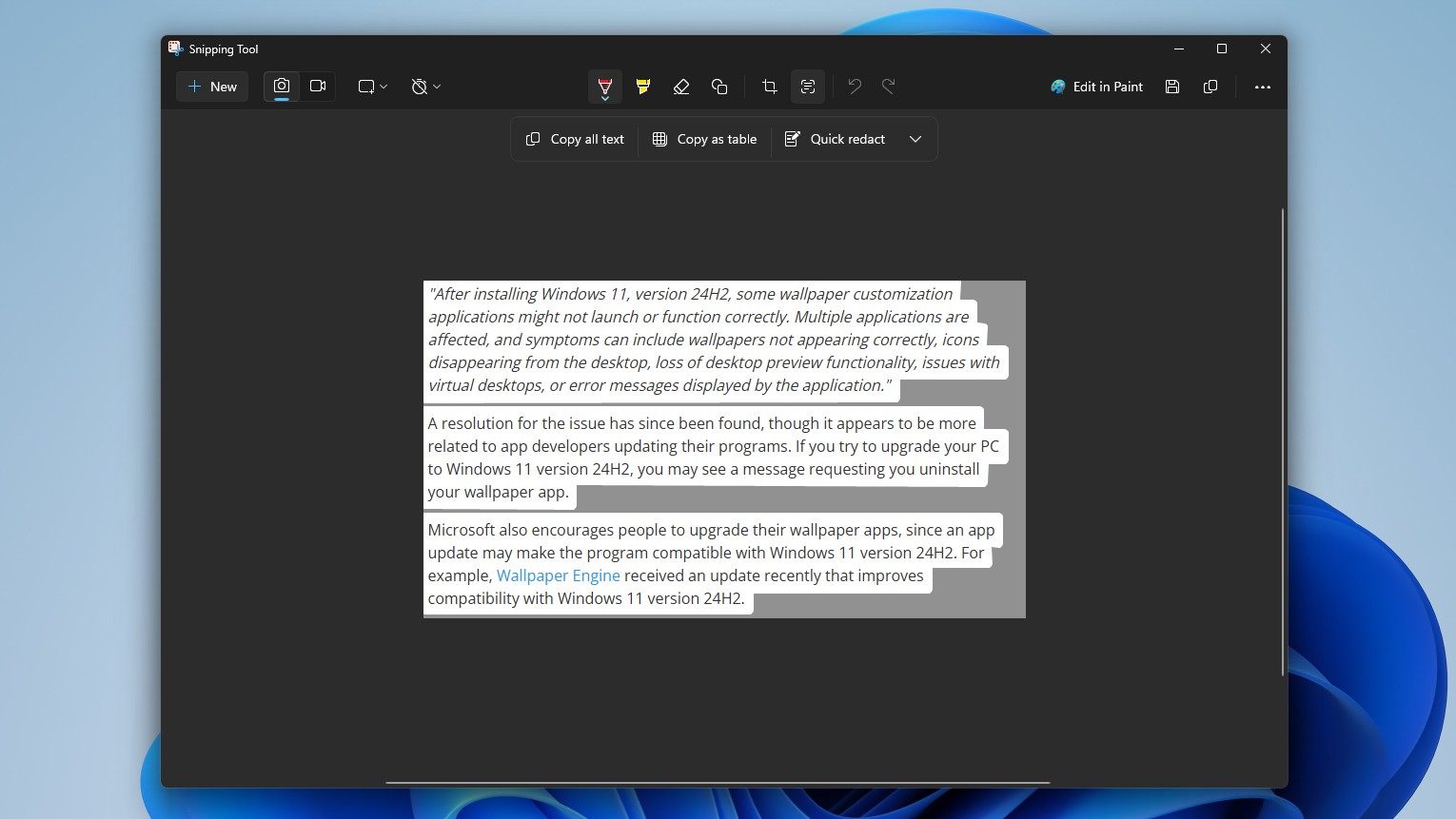As Elden Ring hits 12 million copies sold, AAA game publishers have hard lessons to learn
Death of singleplayer games? Apparently not.
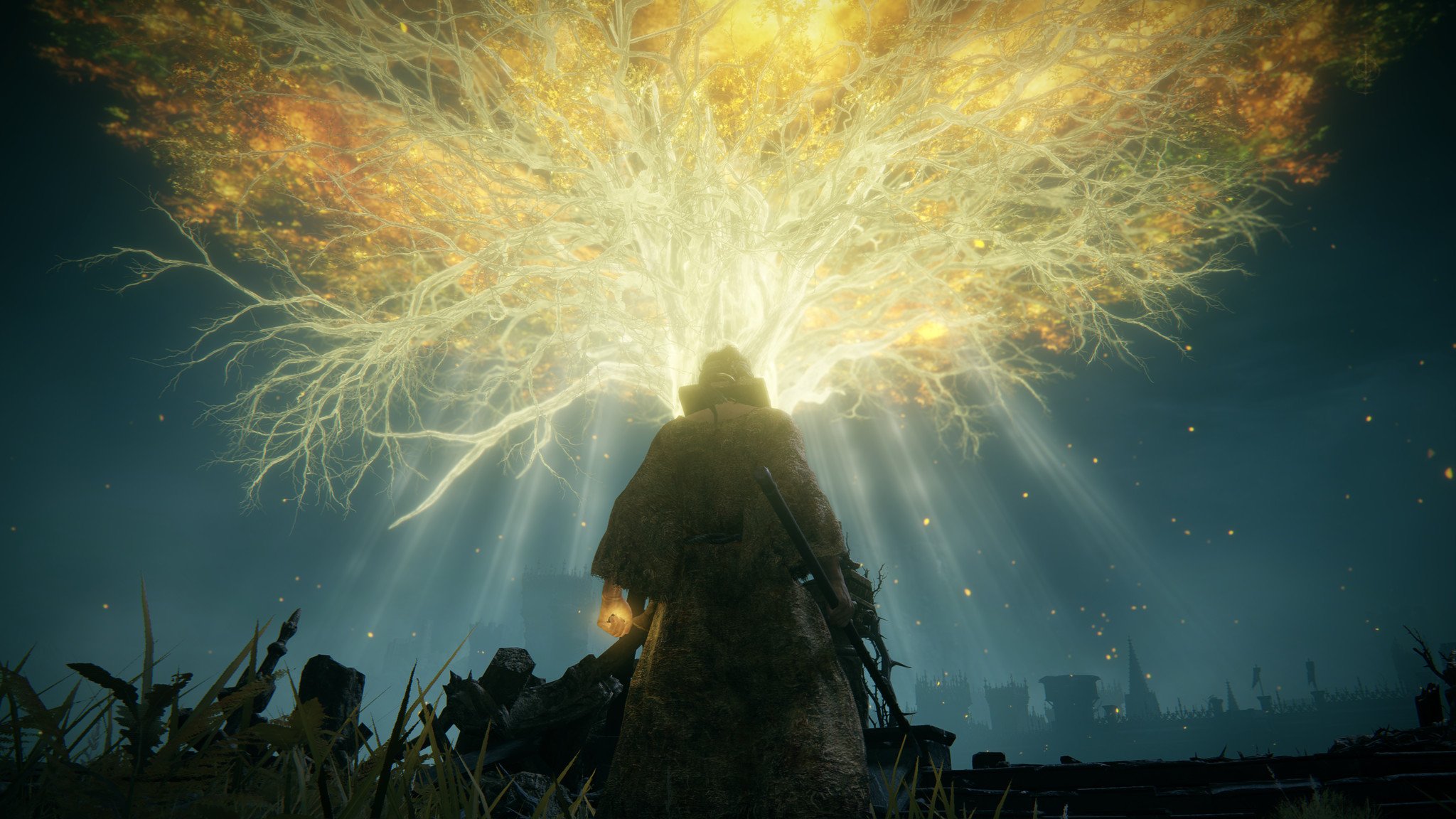
For what feels like years at this point, many AAA developers and publishers have been tripping over themselves trying to figure out where they want to be in the modern gaming industry. We've seen Ubisoft soullessly ship service game after service game, only for them to die quietly in obscurity afterward. We've seen EA tear its legendary singleplayer studios to pieces, forcefully trying to transform them to service game factories, only to desperately backtrack. We've seen Square Enix blame its own studios for poor sales of games that were hamstrung by exec-level greed, rammed with microtransactions that had no business being in a fully priced retail title.
And yet, like a shining star on an increasingly homogenous gaming landscape, Elden Ring soars above the rank and file, defying every cookie-cutter convention to deliver a truly awe-inspiring 12 million units in sales in just a few weeks. This is despite the notoriety of "Soulsborne" difficulty. This is despite launching in one of the busiest Februarys in recent memory. And honestly, it goes far beyond the large marketing effort Bandai Namco put together for this game. There's something simply special and pure about Elden Ring, something that many of today's greed-defined AAA publishers increasingly seem to neglect to even consider — first off, make a good video game.
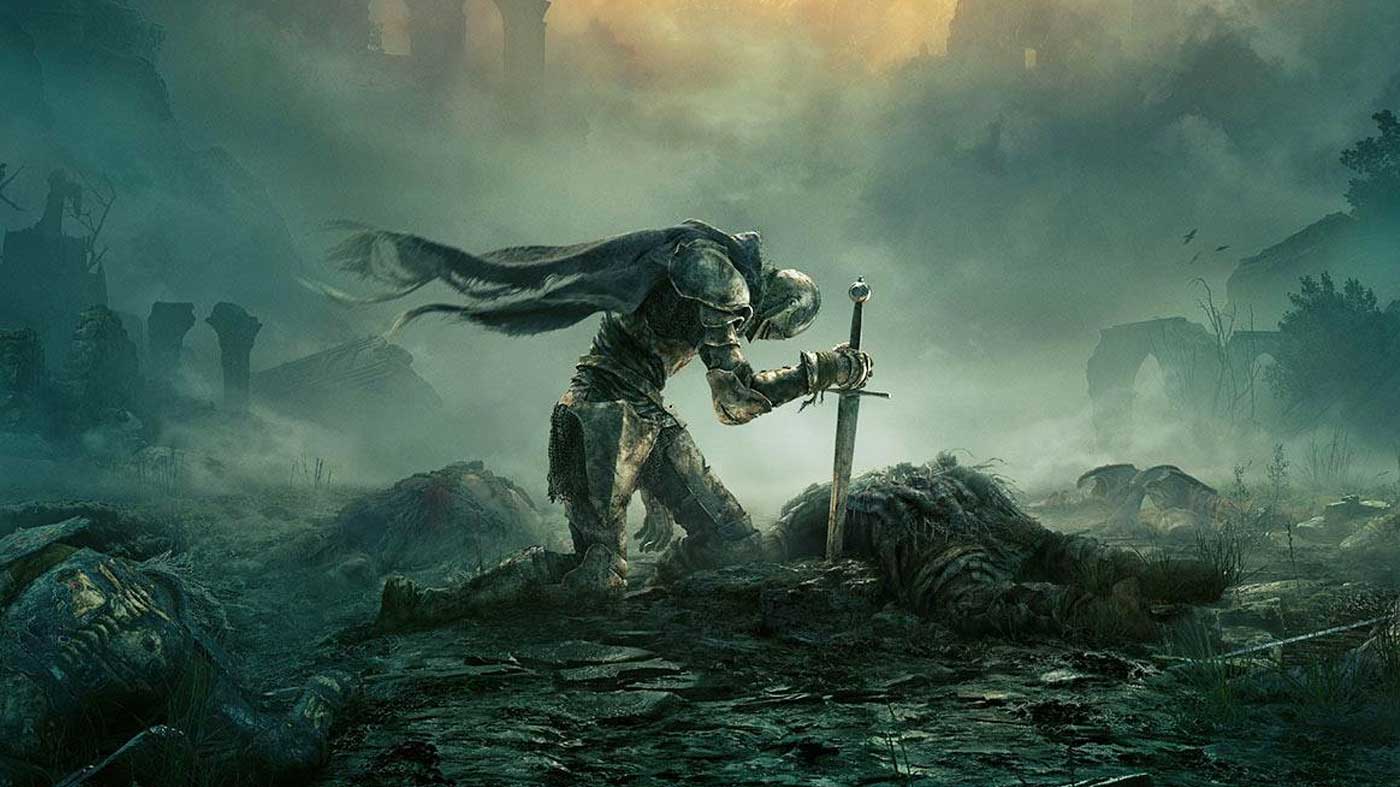
FromSoftware has persistently put out high-quality games for the best part of a decade now, and the vast and broad landscape of Elden Ring remains true to everything the company's growing fanbase expects. Rather than pivoting their signature style into a service-game hellscape, they simply expanded on it, giving players an even bigger world, with even more tools, accompanied by grander experiences. Elden Ring is quite easily one of the best Xbox games of all time, and will enjoy long-term sales success.
I suspect over the next few years, we'll see AAA publishers cynically pick apart and attempt to reverse engineer what made Elden Ring such a hit. I suspect many of them will also miss the point entirely, though. Furthermore, I suspect they will think that Elden Ring's success is in large part down to its surface-level difficulty. Which would be a predictable mistake.
For any of the AAA publisher execs reading this from their in-yacht satellite Wi-Fi, these are at least some of areas I feel you should be focusing on if you want to emulate Elden Ring's success, and doubtless, Elden Ring's long-tail sales. Do not be surprised if Elden Ring goes on to reach Skyrim-like levels of profitability moving forward.
1. World-building over Hollywood production values
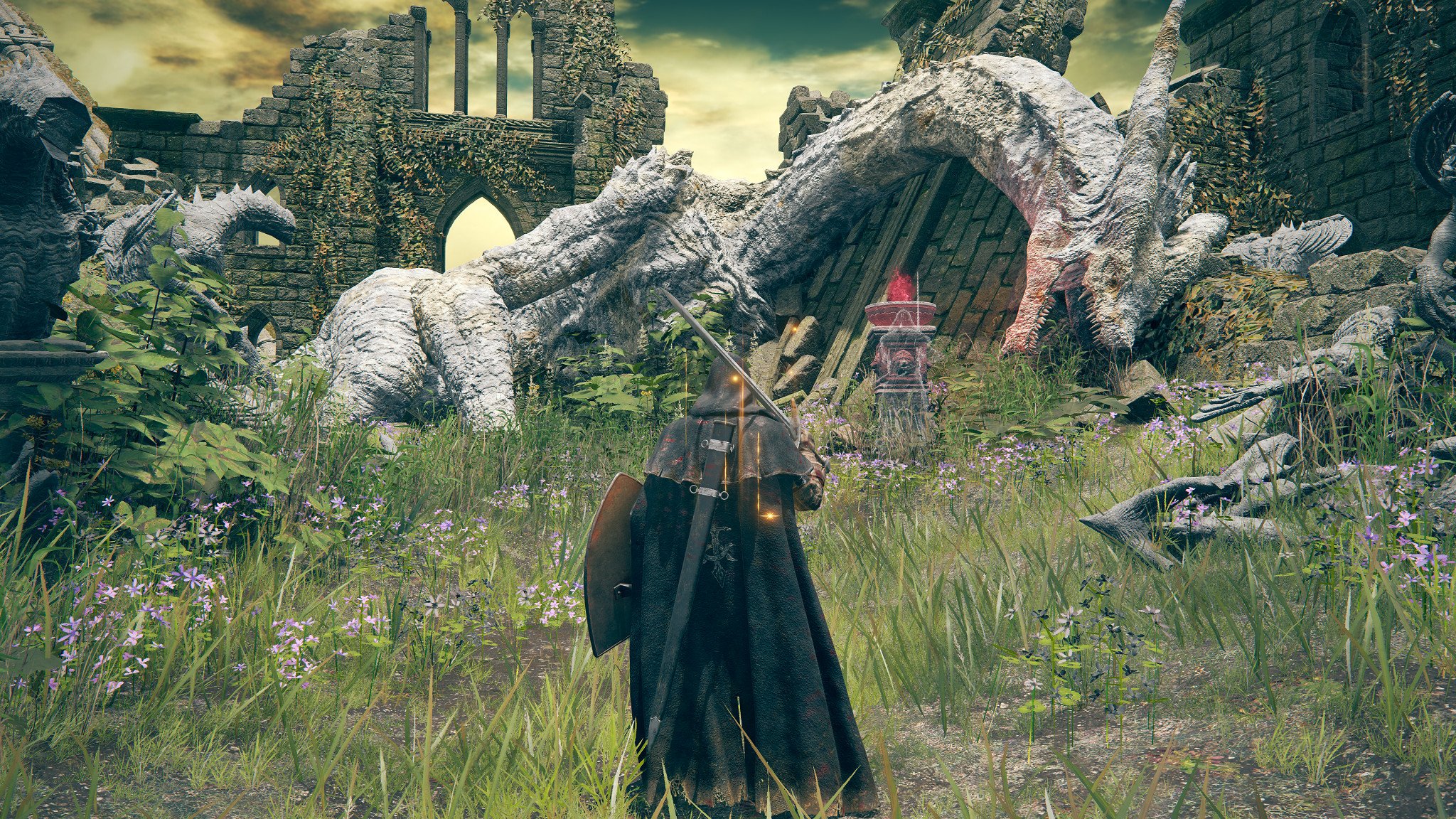
Indeed, Skyrim is something Elden Ring has frequently been compared to, and it's a comparison I don't mind making either. Much like The Elder Scrolls V: Skyrim and the previous titles, one thing remains more true above all other comparisons from me, and that's the consistency of the world-building.
Neither game goes particularly deep on cinematics, although the few cinematics that Elden Ring does have are utterly awe-inspiring. And that's the point, really, sometimes less is more. But one area where that isn't true is world-building, which refers to the effort made to deliver a consistent, believable world.
Get the Windows Central Newsletter
All the latest news, reviews, and guides for Windows and Xbox diehards.
If you're a game director, and your plan is to "add more stuff," I simply, humbly ask you, to ask yourself: Why should I care about the stuff?
In Elden Ring, it feels like every object in the game has a place in the lore and game's world. Nothing is placed there randomly or capriciously. From the emblems and designs of weapons and armor, to the placements of certain monsters, everything has lore implications. Why do living jar enemies explode into a wash of gore and giblets after being killed? Why are there mountains of them piled up at Elden Ring's erd trees? Why is Caria Manor full of disembodied hands trying to murder me like horrible fleshy spiders? I know that nothing here is arbitrary, due to the reputation FromSoftware has built up over the years. Through item descriptions, and through relatively light detective work, an entire world reveals itself to the player. A world with seemingly endless depth that truly sparks the imagination, and dare I say it, allows the player to use their imagination.
Bethesda Softworks follows these precepts, in Elder Scrolls games, Fallout games, and no doubt Starfield too. But, for whatever reason, few other developers really take their world-building too seriously beyond the most basic surface level. For some reason, they think spending $$$$ on heavy mo-cap and Hollywood-grade acting is somehow a better use of funds, over building a believable world that is cohesive and consistent across all of its design precepts.
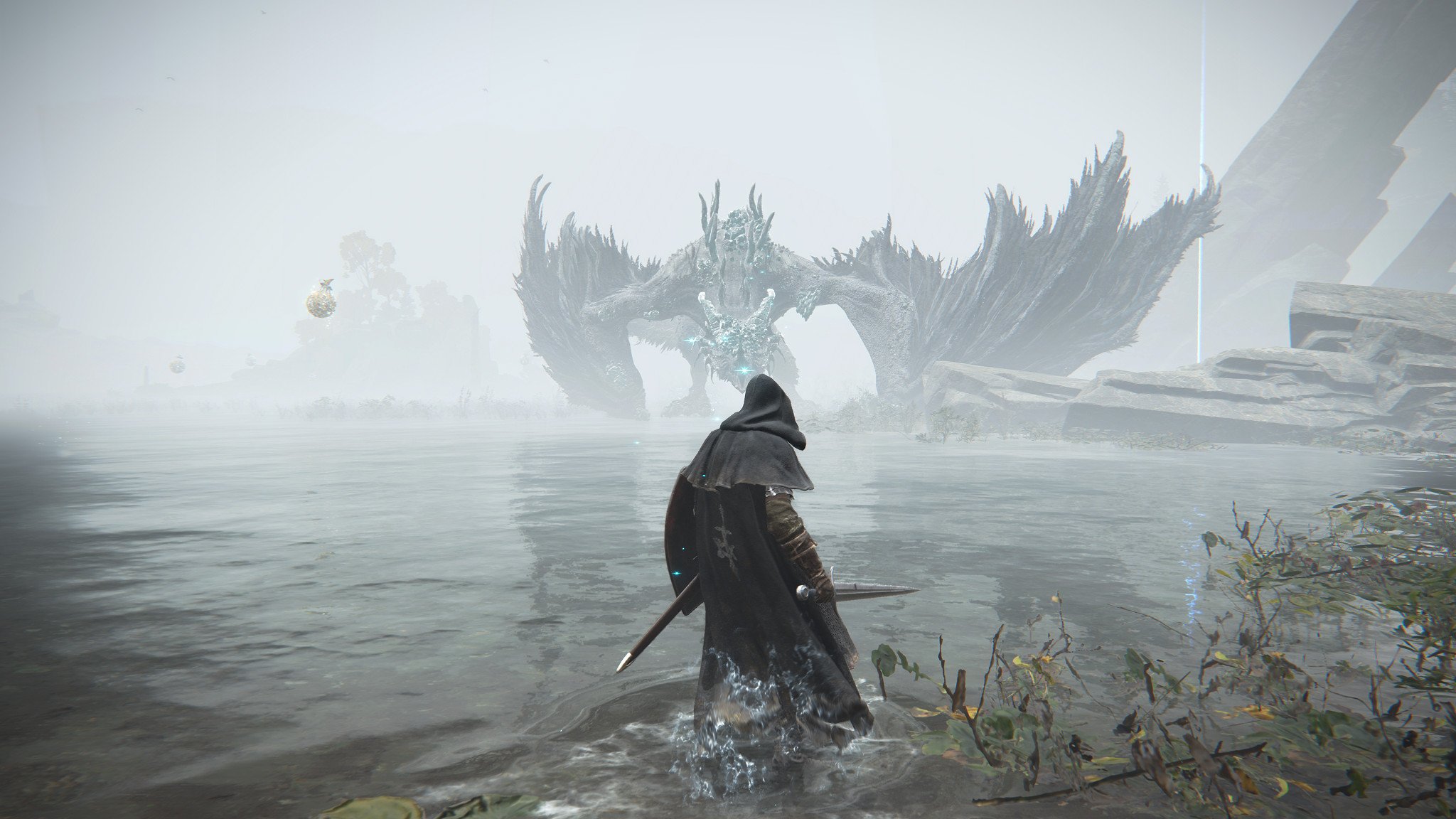
Even if you don't read all of the item descriptions in Elden Ring, the hints and details you're given throughout the game give the world more life and believability than the last dozen Assassin's Dogs Cry Recon games do, while being more memorable. And hey, more marketable. People discuss the game's mysteries at length across socials, sharing the things they've found. I'm still haunted by a weird, fossilized face I found in the hidden basement area of Castle Stormveil.
Elden Ring overdelivers on exploration in ways that other games don't. It really bugged the crap out of me in the modern Tomb Raider games, where I'd do these ancient tomb puzzles in areas that hadn't been touched for millennia, and my reward would be something like ... shotgun parts? The inconsistency between world design and gameplay features simply doesn't exist in FromSoft games. Everything, even the co-op systems are designed with the game's lore and storytelling in mind.
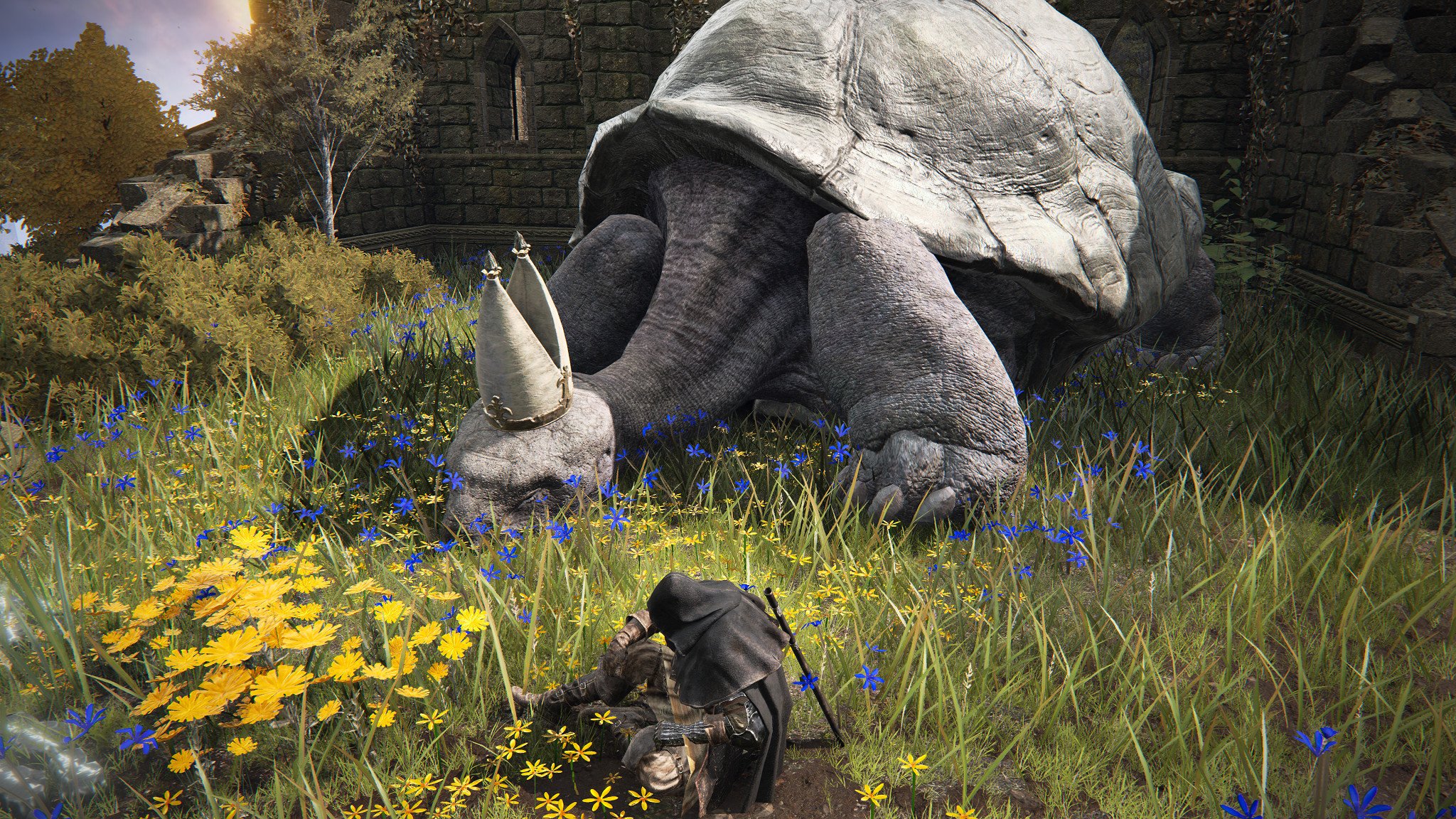
Indeed, simply expanding your open world arbitrarily with endless unthoughtful stuff is reductive. The more stuff you add that I don't care about, the more irritating it becomes. Indeed, when Dying Light 2 developers announced that its game had 500 hours of content, it had the opposite intended reaction — certain developers took the very idea of open world and force-fed it to the point where size no longer registers as a positive.
Of course, size isn't the problem here. It's the quality of the stuff spread around all that empty space. If you're a game director, and your plan is to "add more stuff," I simply, humbly ask you, to ask yourself: Why should I care about the stuff? If you can't give me a cool item, a unique boss, or any good reason to care about tackling the 50th outpost icon on your massive 20-square-kilometer map, maybe don't add it.
2. Respect your customer's intelligence
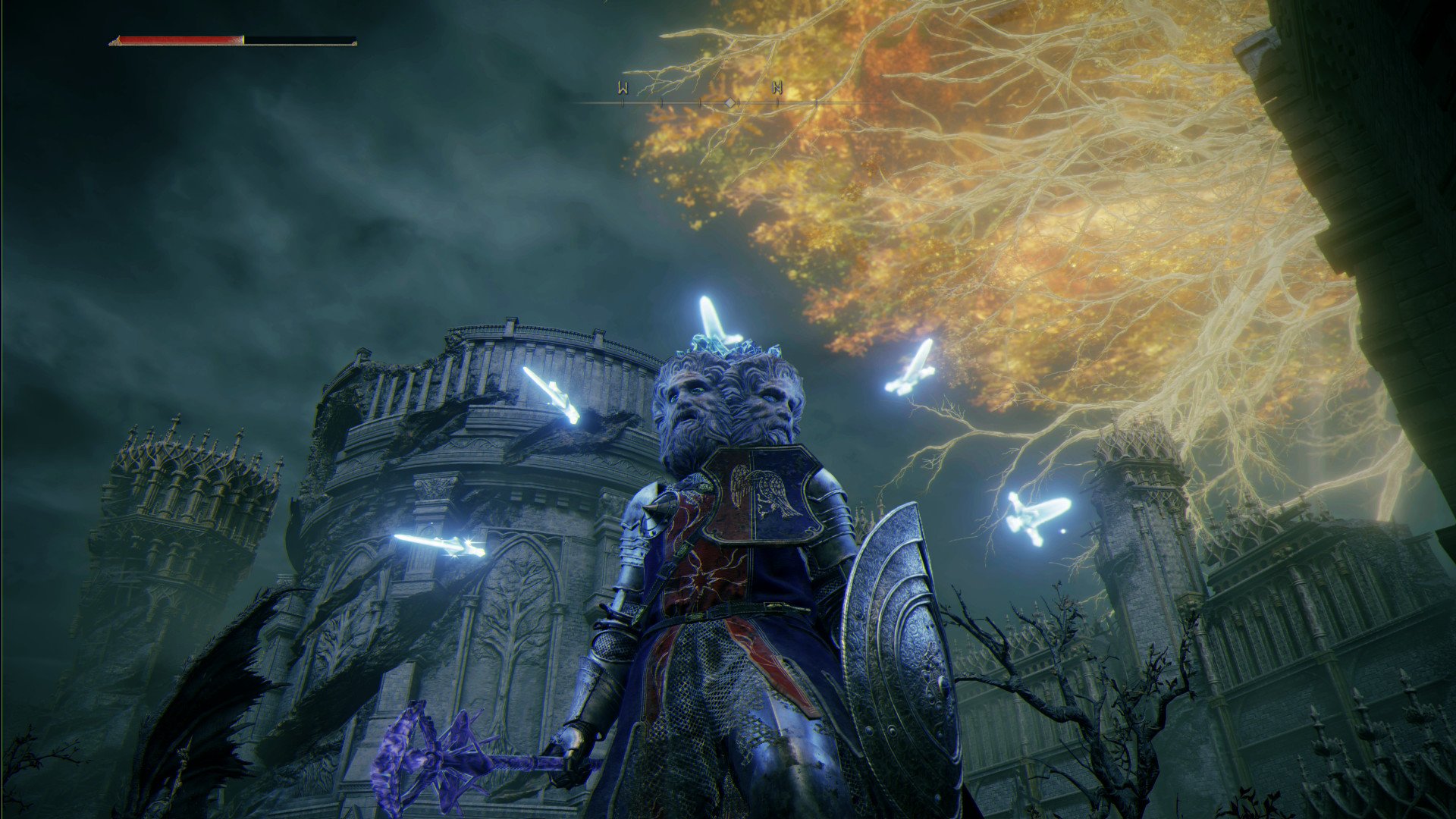
Unraveling some of Elden Ring's story mysteries is something I suspect lore fans will take great pleasure in across the next few weeks. It isn't served up on a shiny Michael Bay-esque platter and framed in simplistic good vs. evil narratives. There's nothing wrong with games that are on the more simple and casual side by any means. But, if you're building an 18-rated "mature" action game in the vein of Elden Ring, which many publishers do and doubtless will try to do in the coming years, a little more respect for the player's willingness to learn and adapt wouldn't go amiss.
It's time for RPG games to remember what the RP stands for.
As someone who played World of Warcraft from its inception to today, one of the biggest mistakes I think Blizzard made was to "dumb down" the game. I'm not entirely sure why they went on a campaign of cutting features and spells from the game, while also simplifying statistics to the point where you don't even really need to make decisions over gear choices anymore. What World of Warcraft looks like today is incredibly shallow, with minimal need to research the game beyond a basic guide on how to perform your damage rotation and what playstyle to use. Blizzard doesn't even seem to try to balance different builds anymore, allowing the community to figure out which is "best" and leaving it at that per character, opting instead to do minimal class tuning passes once every few years.
Blizzard's thought process was likely, "If it's easier, more people will play," but looking at the subscription numbers, it seems to have had the opposite effect. Furthermore, Blizzard had to actually go out of its way to revive the old game's expansions, as "WoW Classic," to stop players from building their own pirate servers based on older builds, back to a time when the game actually had more depth.
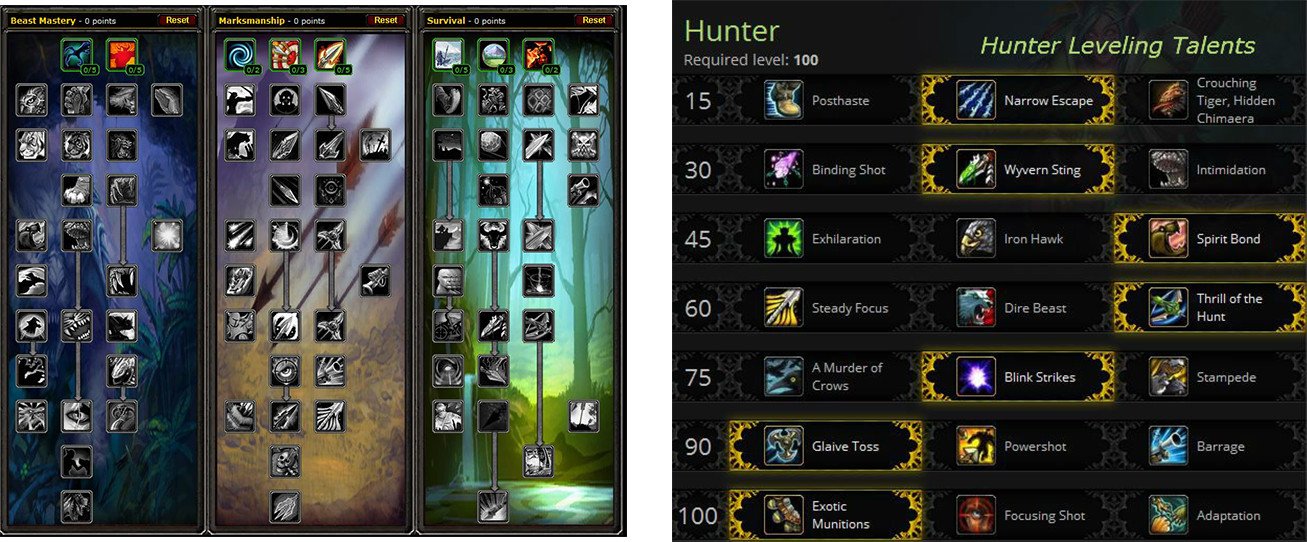
It's funny, because I'm pretty sure Elden Ring's in-game hand-drawn map was at least in-part inspired by classic WoW, which in much the same way, didn't give you a huge amount of information outside of the drawing of the map itself. In the internet age, I think it's okay to let your action RPG have a little complexity. People will research and share knowledge, and knowing you, you know, roleplayed the character you wanted to make, is endlessly gratifying. It has become irritating in World of Warcraft, as an example, how there are systems embedded in the game to essentially punish players for moving outside specific paths for their character, due to Blizzard's reluctance to perform on-going balancing.
In any case, none of this is not to suggest that it shouldn't have difficulty modes. Everybody plays at their own pace. It's just become evident to me that many developers who are clearly building RPGs intended for older, adult audiences have shifted a little heavily in favor of "simplicity = more players," when much of the evidence seems to suggest the opposite. The lack of real choice has become glaringly obvious in most modern RPGs. There's just no real feeling of engagement with these huge "skill trees" which, in reality, will eventually just let you pick basically everything anyway. It's time for RPG games to remember what the RP stands for.
3. Rein in your obnoxious greed
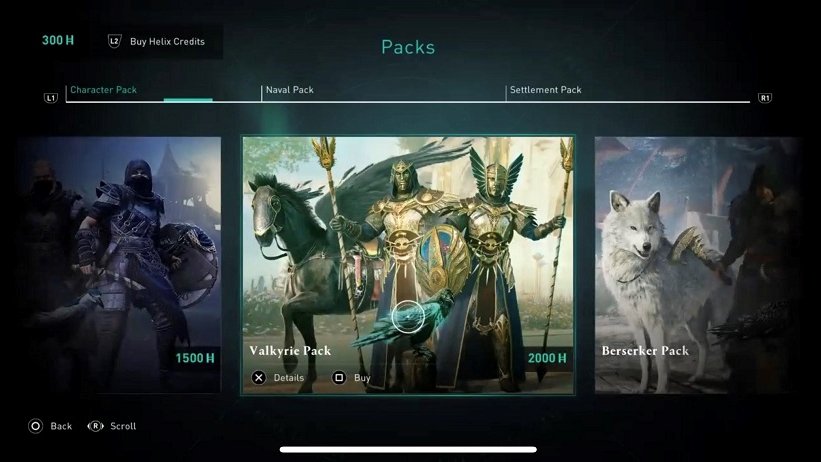
Memes and jokes aside, it has gotten a bit ridiculous in recent years. Whether it's publishers haphazardly chasing industry trends, gutting their studios in the process, or ramming games with more microtransactions than actual gameplay features — boy oh boy, does Elden Ring feel like a breath of fresh air.
There's no cut content. There's no in-game "shop." There are no loot boxes. There are no gameplay design decisions designed to incentivize booster packs. There's no paid anything. The purity of Elden Ring is a truly beautiful thing, and sadly, an increasingly rare thing, in a shareholder-dominated industry that demands short-term profits above all else.
Someone at Square Enix has to wake up and realize this live service venture of theirs just isn't working pic.twitter.com/69qJwQurRBSomeone at Square Enix has to wake up and realize this live service venture of theirs just isn't working pic.twitter.com/69qJwQurRB— MrMattyPlays (@G27Status) March 16, 2022March 16, 2022
EA in particular seems to have fallen afoul of balancing its shareholder greed with, you know, actually making good games. Battlefield 2042 is a staggeringly obvious example of a game that was chewed up and spat out running a gauntlet of very poor exec-level decisions. Nobody ever asked EA to include paid operators in the game. Nobody wanted Battlefield to be a battle royale, as it was reportedly originally planned to be (and you'd think EA would've learned that from Battlefield V's disastrous Firestorm mode). The dregs of a barrage of greedy decisions have led Battlefield 2042 to become a pariah, hitting lower concurrent players than Battlefield V and even Battlefield 1.
Battlefield fans like Battlefield because it isn't like other shooters on the market, and EA's absolutely cynical attempt to chase its competitors saw sure to the game's utter failure. EA tried the same with Anthem and BioWare, and nearly buried the entire studio in the process. They shut down Visceral Games after forcefully diluting the horror franchise Dead Space with Gears of War-like cooperative play. It's pure comedy when you think about how EA is now remaking Dead Space for a 2023 launch. There are various other recent examples of game developers chasing industry trends and ultimately failing in the process. Whether it's Ubisoft's Hyper Scape or Square Enix's Babylon's Fall, the industry is littered with bad-faith attempts to grab short-term cash, at the cost of long-term goodwill.
I have little faith in most AAA publishers
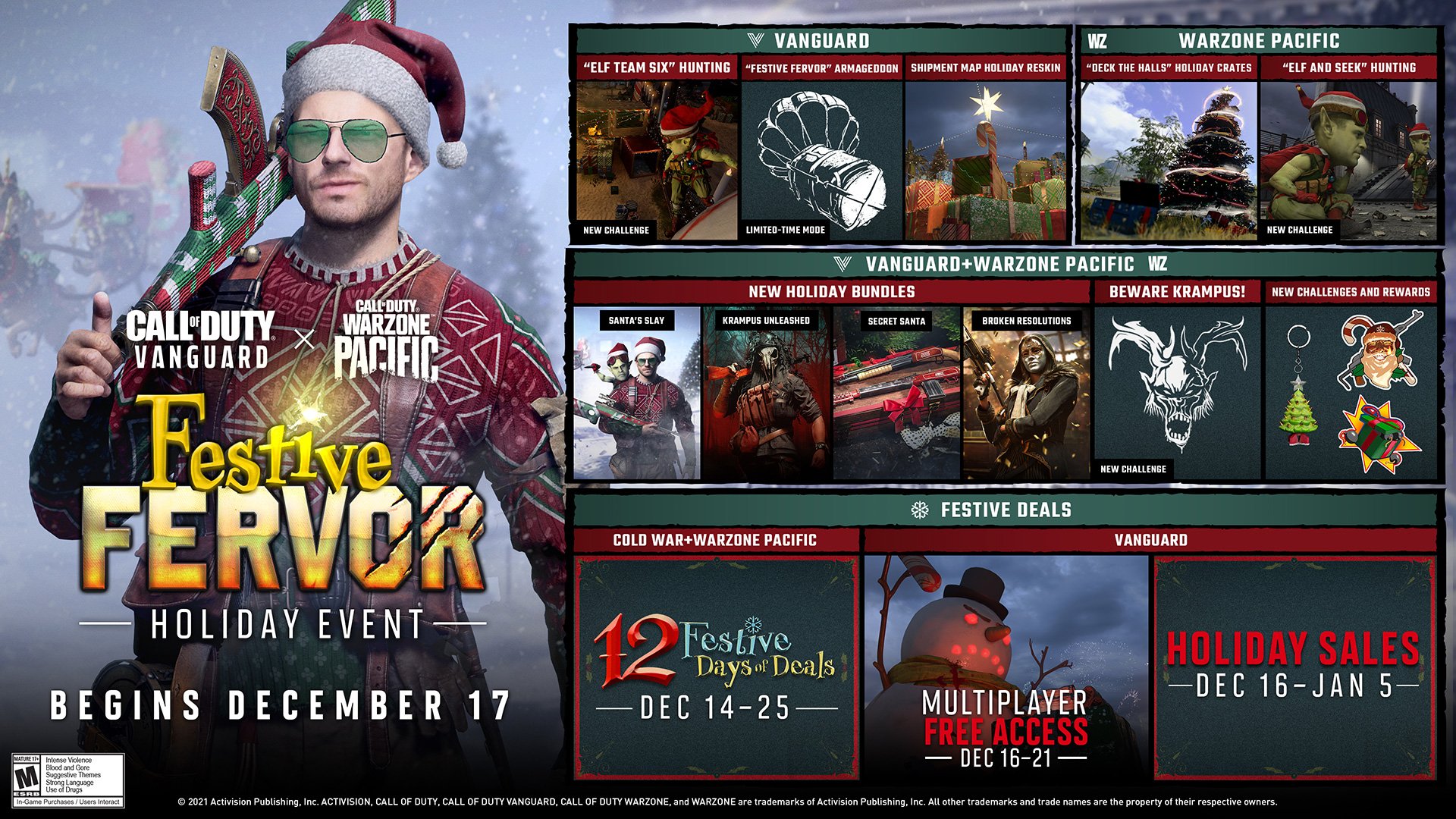
Long-term goodwill is something that is increasingly in short supply for many of the industry's biggest players. Sure, they still rake in massive profits on the back of things like FIFA Ultimate Team, or the annualized ritual that is Call of Duty, but there is a growing crescendo of fatigue with how these big AAA publishers operate from gamers in general. Call of Duty players are even showing signs of fatigue, with sales of Call of Duty: Vanguard slipping well below expectations.
As publicly traded AAA publishers look upon Elden Ring's sales strength, perhaps it's about time they asked themselves what exactly is going on here.
My points can basically be summarized by one thing at the end of the day: greed. Publicly traded publishers probably lament that they cannot slash and burn their way to rapid profits like some other industries can, and try to compensate with these kinds of practices instead. Cutting corners, underdeveloping, skipping innovation, and packing in as many micro-transactional systems as possible. Short-term thinking will lead to long-term downturn, but I suppose that's not an issue for investors looking to make a quick buck.
The wave of Elden Ring wannabes is no doubt on its way. To make a game like Elden Ring, though, publishers will have to dig deep and do a bit of soul searching. Elden Ring utterly annihilated the design protocol of Ubisoft-style, flat open action games, and provided a modern blueprint for building a world that has both mechanical and emotional depth, like Skyrim, classic World of Warcraft, and a few others have to varying degrees over the years.
I think Elden Ring is something of a special case here, though. It's so very different. It throws so much of the modern AAA publisher rule book out of the window, and sold 12 million copies as a result. I'm not sure I remember a time seeing more headlines covering publishers reporting "disappointing sales" to their shareholders, following Battlefield 2042, Far Cry 6, and so on. As publicly traded AAA publishers look upon Elden Ring's sales strength, perhaps it's about time they asked themselves what exactly is going on here.

Jez Corden is the Executive Editor at Windows Central, focusing primarily on all things Xbox and gaming. Jez is known for breaking exclusive news and analysis as relates to the Microsoft ecosystem while being powered by tea. Follow on Twitter (X) and Threads, and listen to his XB2 Podcast, all about, you guessed it, Xbox!
